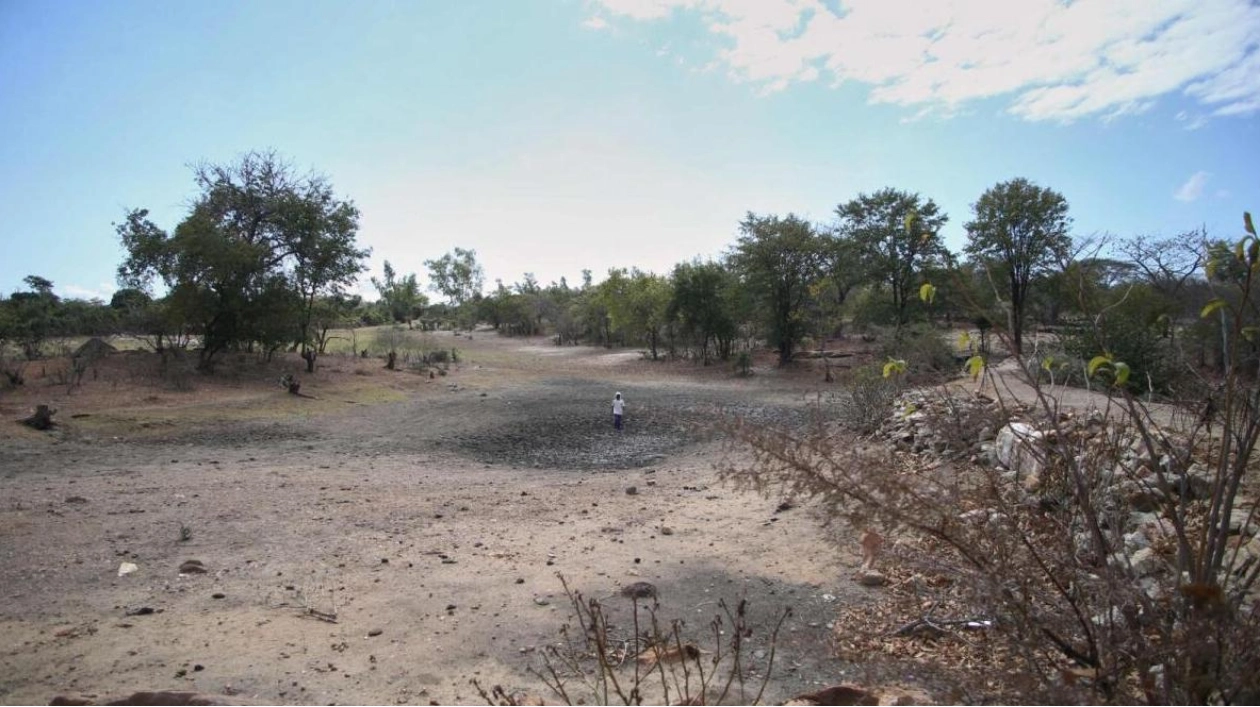A bed of sand and a patch of mud are all that remain of the Kapotesa dam, which once supplied essential water for crops and livestock in this remote region of Zimbabwe. Nearby, farmer Georgina Kwengwere navigates through corn stalks withered by the drought that is devastating her country, leaving millions in need of food assistance. "I put in all my effort and used our savings to buy seeds, but I didn't harvest anything," the 54-year-old lamented to AFP, shaking her head in despair. "Not even a single cob." Kwengwere mentioned that the Kapotesa dam dried up in May. "Only God knows how we will survive until the next harvest next year," she said. When rainfall is plentiful, the dam in the northeastern Mudzi district enables Kwengwere and her husband to cultivate vegetables for their family of eight. They even have surplus produce to sell for cash to buy livestock and cover school fees. Now, Kwengwere must join other villagers in a daily five-kilometer trek to the business center in the small town of Kotwa to find odd jobs to afford food. On a good day, she earns about $3; on a bad day, she returns to her village of Mafuta empty-handed. Like most villagers in the district, which has a population of around 164,000, her family has reduced their meals to just two a day. "Most of us have no food in our homes," said Takesure Chimbu, 58, from Mafuta. "Without water, everything is down," he told AFP. Cases of malnutrition have risen by about 20 percent in Mudzi over the past three months, according to district medical officer Kudzai Madamombe. "Food is quite expensive in the district, especially due to our drought-prone nature," he said, urging for government aid. In response to this surge in malnutrition, health experts in Mudzi have developed a nutritional porridge called maworesa, meaning "the very best" in the local Shona language. Made from affordable, locally sourced ingredients like eggs, sugar beans, and baobab fruit contributed by villagers, the porridge aims to meet basic nutritional needs by incorporating carbohydrates, protein, and fruits and vegetables, Madamombe explained. "This has significantly helped in combating malnutrition with minimal expenditure while ensuring that every child in every family receives at least four basic food groups once a week," he said. Zimbabwe, along with neighboring Malawi and Zambia, is among the countries in southern Africa most affected by malnutrition following a severe drought exacerbated by the El Nino phenomenon. In May, President Emmerson Mnangagwa declared a state of disaster, stating that Zimbabwe needed at least two billion dollars to address the drought. The UN reported in May that at least 7.6 million people, nearly half of the population, require aid. Children under five and pregnant and lactating women are the most affected. "Harvests have not been satisfactory," said Yves Willemot, Unicef Zimbabwe's chief communications officer. "Most people are in a dire situation due to lack of access to water and food." In early June, the UN initiated a $429 million drought appeal for Zimbabwe. "So far, except for internal resources and those from the UN, we have not received any contributions," Willemot said.

Text: Lara Palmer
09.07.2024
Farmers in Zimbabwe's Mudzi District Face Harsh Realities as Drought Wipes Out Crops and Livelihoods





